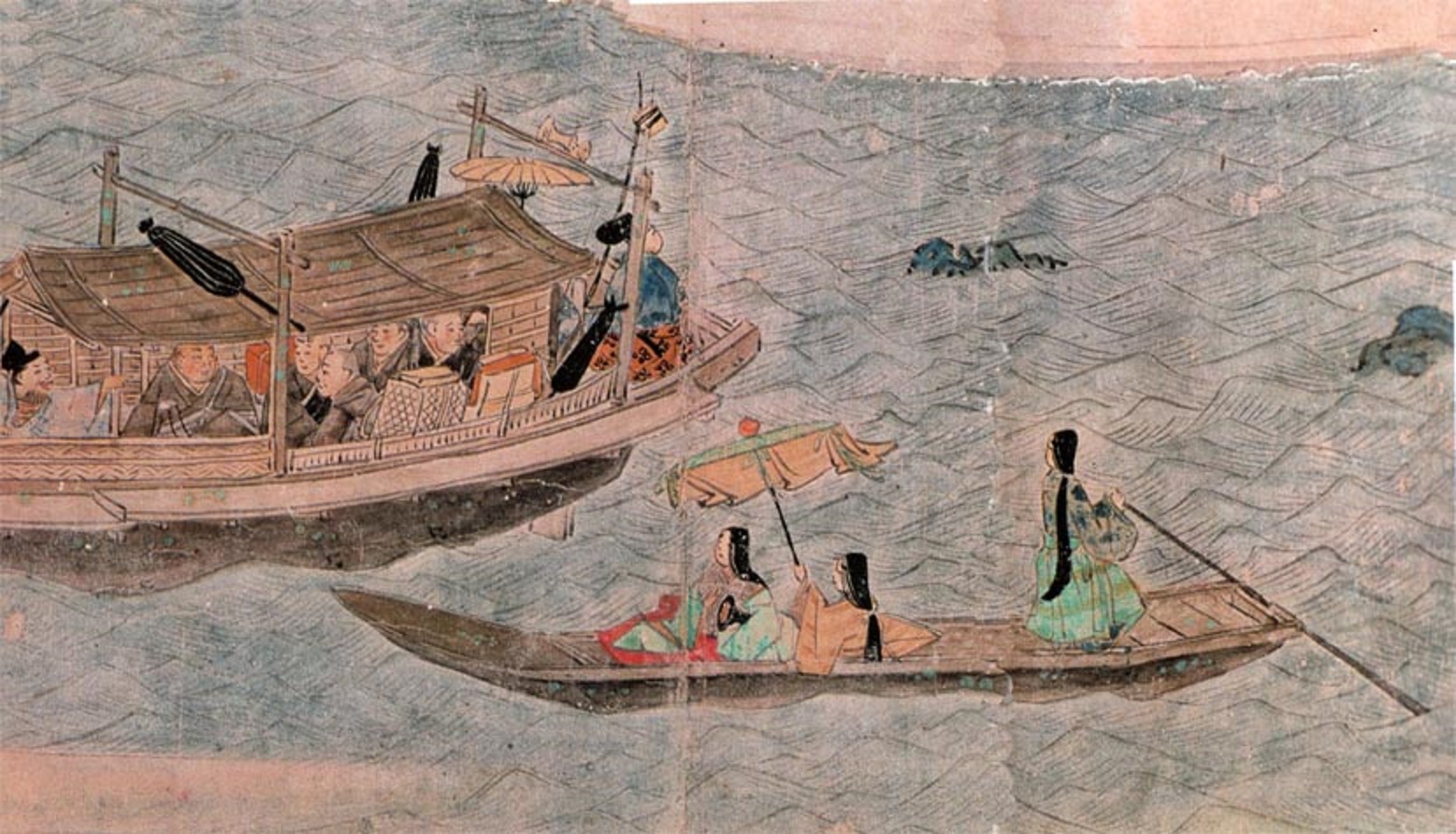
One of my favorite stories about the life of Honen, the 12th century Buddhist monk who started the Pure Land Buddhist movement in Japan, is from his time of exile in 1207. From the capitol (modern day Kyoto) he and many followers were banished to the hinterlands, a common punishment at the time. In Honen’s case, he was exiled to the island of Shikoku, and while he crossed the channel from the port of Murotsu (室津),1 he was approached by another boat whose passenger was a local prostitute.
The story is recorded in English in Traversing the Pure Land Path among other places, but basically the woman asks Honen how someone like her with such a miserable lifestyle can find salvation in the life to come. Honen replied:
“If you can find another means of livelihood, give this up at once. But if you can’t, or if you are not yet ready to sacrifice your very life for the true way, begin just as you are and call on the sacred name [of Amida Buddha]….”
page 50-51
Later, when Honen was allowed to return back to the capitol, he found out along the way that the woman had taken his advice and devoted herself to the Buddhist path until her death some time shortly after. “Yes, it is just as I expected,” he said.
There are few things I think are worth calling out here. First, Honen was already pretty well known at the time, and in a conservative medieval society, the thought of a famous monk talking to a woman of the night would have been scandalous. Second, Honen didn’t try to shame her. He pointed out that it was a dangerous lifestyle, but if she can’t leave, she can begin her Buddhist path “just as she is”. Finally, the results (if the biography is to be believed) is that in the end she took it seriously and attained great progress.
Even now, 800 years later, I think this idea of “begin just as you are” is one of the most appealing aspects of the Pure Land Buddhist path, especially Jodo Shu Buddhism, and why I still come back to it time and time again after all these years.
Pure Land Buddhism gets a lot of flak sometimes from Western audiences because it doesn’t mesh with our understanding of Buddhism (spoiler alert: 5th century BC India is not the same as 12th century Japan, which is not the same as 21st century America), and while I understand the concerns, I think it’s missing the point.
One of the frustrations I’ve had over and over again, especially with so-called “American Buddhism” or “Western Buddhism” besides its Protestant approach1 to a totally different religious tradition, is its tendency to rely strongly on master-disciple relationships. This means things like finding the right empowerment from such-and-such guru, or finding a good meditation teacher, etc. These put a lot of trust in one individual (some with sketchy backgrounds) and tend to be biased toward those who can afford the time, money and educational background for this sort of “lifestyle”. Newer “modern” traditions can be even more risky because they’re often thinly-disguised cults.

In keeping with Honen’s “begin just as you are”, I feel that the Pure Land path, while being a part of East Asian Buddhism for many centuries before Honen, still has an enduring power to it even here and now because any one can do it, and once one passes through that gate, it opens up many other possibilities for Buddhist practice, teachings and so on. I can attest to this from personal experience: after a chance encounter at the temple of Chion-in way back in 2005, what I first thought was”Buddhist superstition” grew on me and became a strong foundation from which I explored other aspects of Buddhism later. Some of those aspects were ultimately dead-ends for me, but I never entirely forgot the simple practice of reciting the nembutsu, even when I have disagreed with doctrinal minutiae here and there.
Like the prostitute at Murotsu though, everyone has their personal problems, some very serious. Many of us aren’t good Buddhists, or even particularly good people. Nevertheless, what the Pure Land Buddhist path shows is that the compassion of Buddha still shines down upon all of us, just as we are, and welcomes us to follow a better way with the light of the Buddha quietly guiding us.
1 Now part of modern day city of Tatsuno in Hyogo Prefecture.